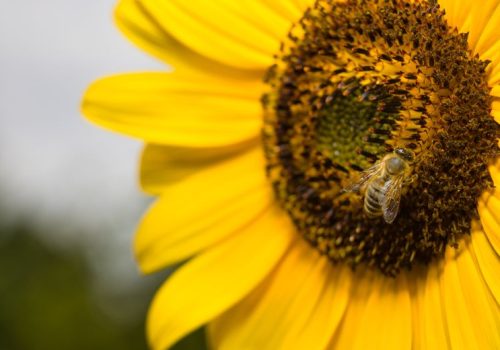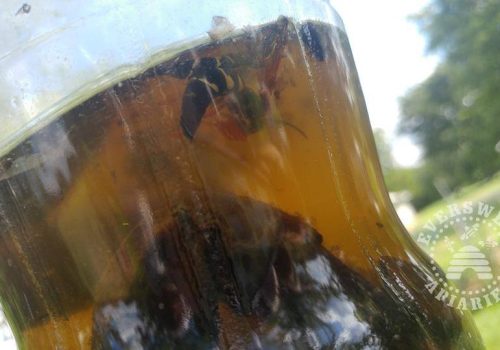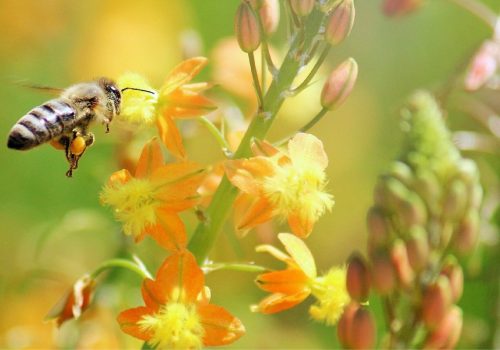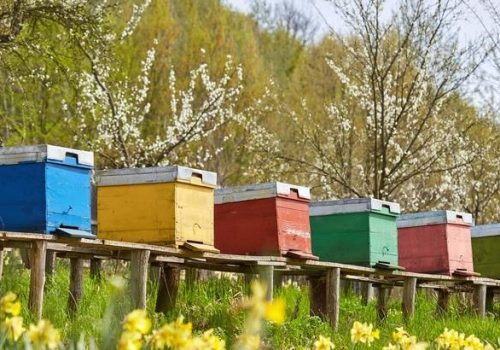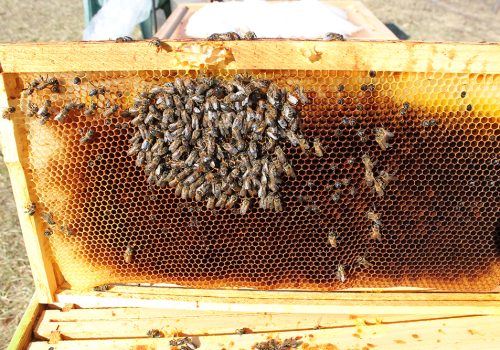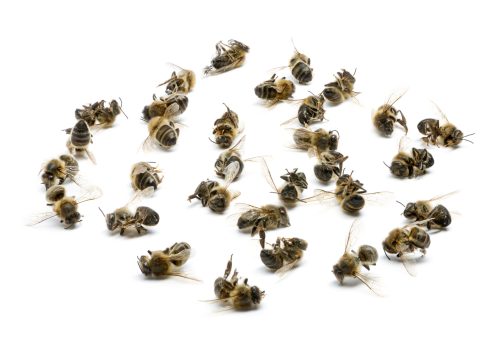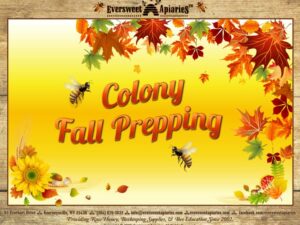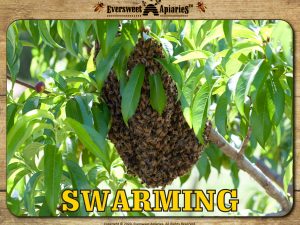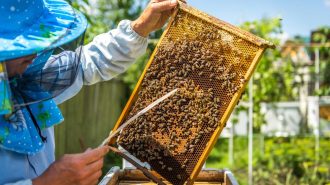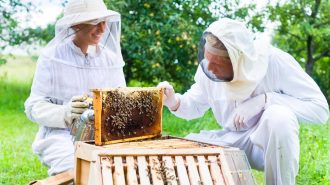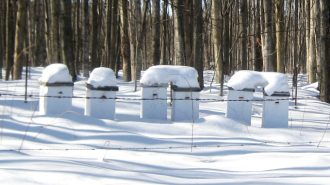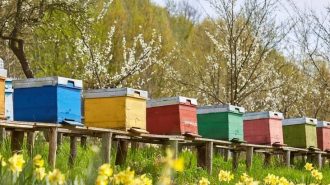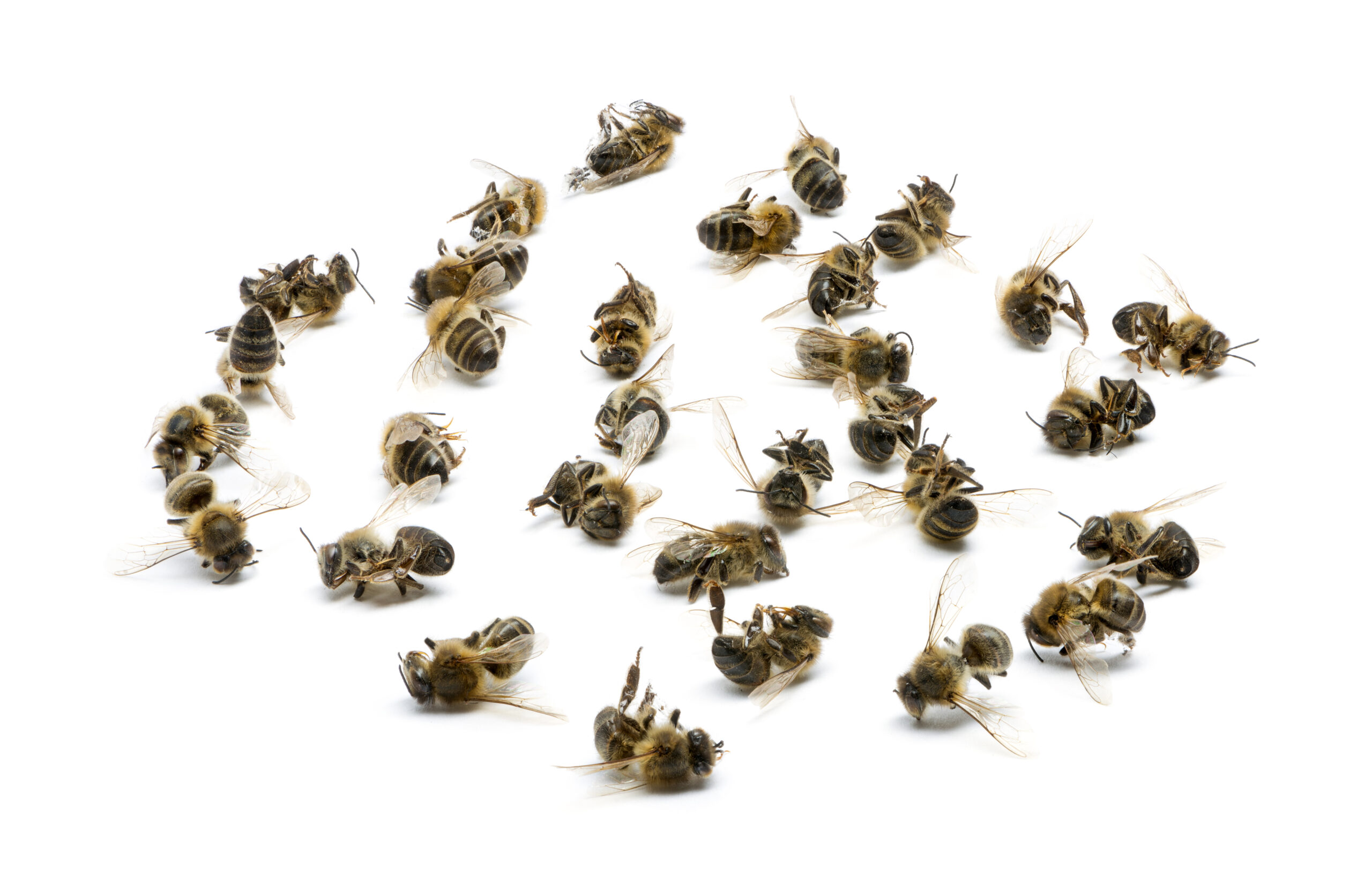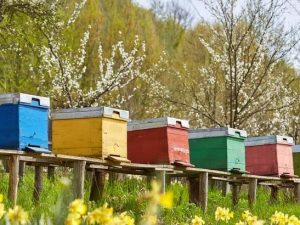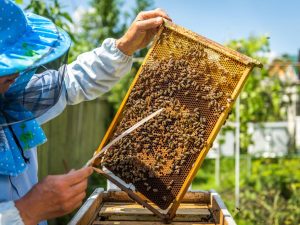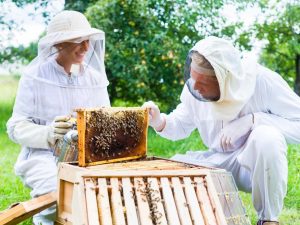I’ve been thinking about the latest honey bee loss report from the USDA-ARS Bee Research Lab (Lamas, Z. S., Chen, Y., & Evans, J. D. (2024). Case Report: Emerging Losses of Managed Honey Bee Colonies. Biology, 13(2), 117–117. https://doi.org/10.3390/biology13020117) for a few days now. Should I worry? Should I respond to it? Is there anything I/we can do about it? Is this new information? Some already peg me as an alarmist or beekeeping’s Nancy Negative or Debby Downer so I often hesitate to respond to findings or don’t respond at all. Fact is I’m a realist and truth teller but in the past few years I think I’m just a broken record on a loop of honey bee management which either falls on deaf ears or gets shuffled under sensational digital creators and influencers.
At first blush of this report I don’t see anything more alarming than what has been happening to honey bees for almost 40 years since the varroa explosion. In fact, the initial reading/results seem very similar to previous sudden loss reports; in particular the 2007 loss when the term Colony Collapse Disorder (CCD) was coined.
Before freaking out and posting bee apocalypse memes on social media with bees wearing gas masks and Albert Einstein quotes about bees dying (which he didn’t say and he also didn’t say the insanity quote either), we must examine what CCD is and its history. CCD is defined as a condition in which the majority of adult bees disappear leaving behind a queen, ample honey and brood, and little obvious sign of disease that might explain their disappearance. 2007’s occurrence wasn’t a new phenomenon. This was not the first time that beekeepers have been faced with unexplained losses. CCD occurred in the late 1800s, early 1900s, and the 1960s. It also has had several nicknames: Mystery Disease, Disappearing Disease, May Disease, Spring Dwindle, Autumn collapse, and Fall Dwindle Disease. There are lots of suggestive causes but there is not a direct link. They ruled out cell phone towers as a cause. Some believe it’s nature’s way of cleansing the gene pool. Side note, genetics such as breeding for varroa sensitive hygiene is a huge area of concern in modern beekeeping. CCD is an unusual occurrence and most evidence will lead to a direct cause for colony failure/collapse. We can usually autopsy a hive to determine probable causes of death. More often than not, there are several contributing factors of deaths. But if we are knowledgeable and truly honest with our management practices (past & present) we can usually come up with some reasons for what may have happened. For most losses we have to go back months to examine the point or points of where things may have gone wrong.
Modern beekeeping keeps doing most of the same education and management and then we expect different results. To really understand modern beekeeping, we have to do a deep dive into education and bee management practices of all the categories of beekeeping (commercial, sideliner, and hobbyist) for the past four decades. And we have to do it with honesty and real self-reflection. Eversweet was started in 2002 by my Father, Herbert Everhart. Dad was a realist and truth teller…straight arrow, no frills kinda guy. He was raised on a farm and loved his vegetable garden. In fact, being able to grow better/more fruit and vegetables was why he started to keep bees. These were his knowledge roots to beekeeping. He learned in his early years of beekeeping that synthetic mite treatments such as amitraz, fluvalinate, etc. were not the answer to mite management and in fact part of the problem leading to mite resistance. Probably around 2004, he stopped selling and promoting all synthetic mite treatments and began spreading awareness about alternative methods and treatments. Ironically, his advocacy for alternative mite treatments were often met with resistance. Why? And why is this still a problem today? Why do we keep using this stuff? Largely because modern beekeeping is dictated by sellers and manufacturers. Another big reason is because in the beekeeping community bee education leaders are mostly false prophets or inappropriate prophets. These are beekeepers who have a lot of hives (or say they have a lot) and are selected to follow not for their actual good knowledge or advice but because of how many hives they have. People equate hive numbers to knowledge… “oh, they have a lot of hives! They MUST know what they are talking about!” Commercial beekeepers manage their bees very differently than sideliners and hobbyists and the latter should not always take their advice if it isn’t rephrased/broken down for the sideline/hobbyist’s management. Also, snake oil salesmen and charlatans are a huge problem within beekeeping trying to sell equipment and bees and they will tell you absolutely whatever to sell their products.
I’ve carried on Dad’s bee advocacy legacy but I’ve found it largely a grueling uphill battle. I’ve examined the many ways I’ve failed to spread awareness better… some are just the way things are and some ways I can do better. That is a conversation for another time. Last year I was asked to give a presentation to the WV Beekeepers Spring Conference. I wanted to select a different topic than the normal management ones. I decided that mite management was best but I had to make it different so I wasn’t beating that dead horse (because it ain’t dead yet). I took on a very ambitious twist… “Mite Management: Where We’ve Been, Where We’re Going, and Where We’re Going Wrong”. It was ambitious largely because I had to cram almost 40 years of mite and honey bee management history into 45 minutes of speaking time. It was also challenging because there was a lot of research to cite my already formed hypothesis and knowledge. I know what some might be thinking at this point… this sounds like confirmation bias. Well if my confirmation bias is my over a decade of experiences dealing with bees and people, combined with my Dad’s knowledge, then so be it and you can call it whatever you want. The end result of the presentation was eye opening to many, including myself because I learned new innovations on the horizon for mite management and it reinforced my teaching strategies for better, sustainable beekeeping. I always hesitate to use the word “sustainable” in relation to beekeeping because it is such an overused catch phrase and largely, really doesn’t exist in today’s beekeeping. But I guess I’m a fool because I do believe it can be possible.
I do not want to diminish the results of the latest CCD report but I want to add, unfortunately, this isn’t new information. What we can’t do as a bee community is to continue to blame all bee loss to CCD and keep regurgitating that term among us and new beekeepers. It has taken years to try and break beekeepers from blaming every single thing that goes wrong in a colony to CCD and/or pesticides. I can’t tell you how many times I’ve heard beekeepers blame winter losses on pesticides… like who is spraying pesticides in winter?
The three major problems facing honey bees today is the same it’s been for 40 years:
Varroa mites: no need to elaborate more in this discussion about satan’s spawn
Poor foraging capabilities due to lack of habitat/resources and monocultures: Probably no need to elaborate more here but I feel compelled to do so because we don’t grow food anymore… we grow townhomes and strip malls. The lack of plant knowledge/science among regular folks in today’s world is frightening. If bees had access to better nutrition they could combat a lot of health issues better.
Poor bee education and management: This has been the bane of my existence. People often jump into beekeeping without the proper knowledge to do so. Keeping bees is animal husbandry but there is a heightened level of accountability and responsibility to beekeeping. Bees are not like goats and chickens, they fly and spread all their potential ailments within a foraging radius (usually 3-5 miles) to other colonies.
For the past 30 years, probably thanks to the media, it has become very fashionable to become beekeepers. People have very romantic thoughts about becoming a beekeeper… “we’ll get honey to sell at farmers markets, give to family/friends.. It will be fun”. Okay… good luck with that. Beekeeping is a revolving door industry of about three years. Three years being the mark when most people find out it’s not all it was talked up to be, lose bees, and lose lots of money in the process. People get sucked into it by the internet, YouTube, social media, influencers, sellers, and bee clubs. I know what you’re thinking, “bee clubs? I thought they were a good thing?” They can be if they are structured properly with a solid set of bylaws which are led and followed by good people, and not co-opted by sellers who take over the club to sell their wares to fresh, unaware beekeepers. In addition, their beginner classes need to not only have up-to-date, comprehensive information but must be taught by good teachers. Any one can read a PowerPoint slide but can they break it down and connect the dots for new beekeepers? The bee community keeps Ouroboros’ing itself by telling new beekeepers to take classes from local bee clubs. But what happens when the club is not educating people properly? Clubs are failing our bees, communities, and new beekeepers by churning out more uninformed beekeepers. They are setting bees and people up for failure. You don’t know what you don’t know and most people walk away from these club courses like they are prepared to keep bees. Most are not. I’m not knocking clubs… just the bad ones. Bee clubs are a whole dissertation by itself.. I must move on for now.
The internet.. YouTube, social media, forums, etc. are the go to for beekeeping knowledge. This can be good for most topics but when it comes to beekeeping it is largely bad and ends with bad results. Beekeeping is time sensitive and by the time you think you have a problem and do research or ask questions in forums it’s often too late to turn issues around. And often, the answers that are given are contradictory, confusing, and/or just plain wrong. If you’ve built a solid educational foundation before starting to keep bees you will be better equipped to handle whatever problems may arise. Sure you can self teach and learn as you go but that is a hard row to hoe which often not only leads to disaster for your bees and wallet but also jeopardizes colonies within your foraging vicinity.
Again, not to diminish the newest CDD report but I want people to examine everything more before jumping to bee apocalypse conclusions. I want to reiterate everything my Dad and I have been advocating for for 20+ years. Proper bee education and management are critical to being a successful beekeeper. And we need to rethink the definition of what a “successful beekeeper” is. You absolutely will lose bees and anyone who reports not losing bees is lying. But you need to understand and be truthful with yourself as to the exact reason(s) why you lost your bees. Only then can you learn from any possible mistakes. To add, you can do everything by the book and still lose bees. Beekeeping is a super risky and expensive endeavor which shouldn’t be entered into lightly. I actually feel accomplished after teaching my beginner courses and some people don’t want to keep bees, they want to wait to gain more knowledge, or for a time when they can commit better. They got it…they will be good beekeepers one day. Bottomline, beekeeping and bee losses won’t get better if we don’t change the way we educate, learn, and manage our bees.

 EversweetLearn how to help your hives survive winter! Topics discussed are geared for the mid-Atlantic region, however, concepts/methods can be applie...Beginner1 Lectures1.5 hours$25
EversweetLearn how to help your hives survive winter! Topics discussed are geared for the mid-Atlantic region, however, concepts/methods can be applie...Beginner1 Lectures1.5 hours$25 EversweetBe sure to get the best info about how to prepare your bees for fall/winter! Our Colony Fall Prepping Class is available online to view atBeginner1 Lectures1.5 hours$25
EversweetBe sure to get the best info about how to prepare your bees for fall/winter! Our Colony Fall Prepping Class is available online to view atBeginner1 Lectures1.5 hours$25 EversweetLearn how to prevent and control honeybee swarming!Beginner1 Lectures1.5 hours$25
EversweetLearn how to prevent and control honeybee swarming!Beginner1 Lectures1.5 hours$25

